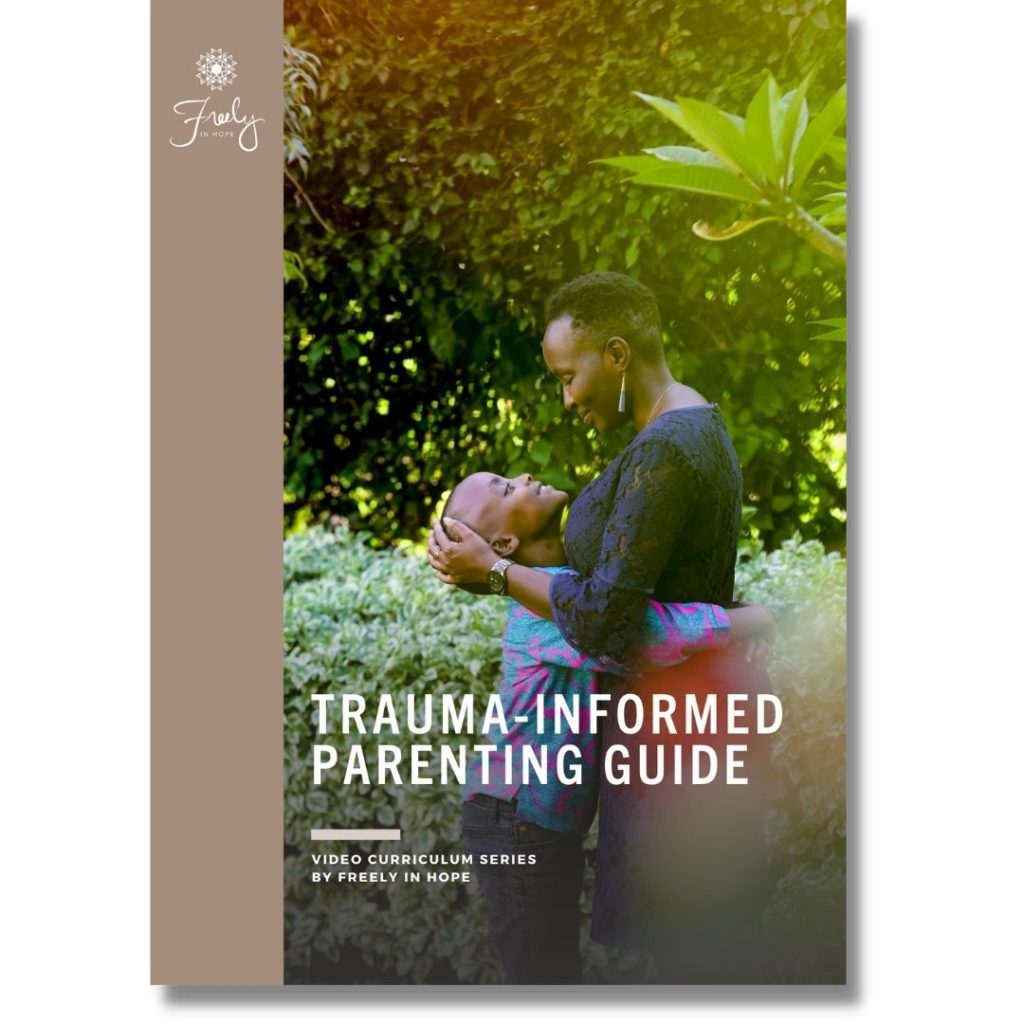The holidays are a beautiful time of connection with friends and family near and far. For some, this season makes us feel loved by trusted family members that surround us with safety, empathy, and protection. For others, it invokes anxiety, depression, and fear due to family members who cause abuse, harm, or toxicity. Regardless of the family situations that we come from, we can make empowered decisions to protect our children during this holiday season. Here are 3 ways to keep your kids safe during this holiday season:
1. teach body boundaries
It is important to not only specify body boundaries, but to model them as well. As children learn to develop a sense of independence and autonomy from a young age, they will learn to carry these boundaries into new situations—such as visiting another relatives home or playing in a public space. Prepare your children by letting them know that even though they may be seeing relatives that they haven’t seen in a long time, the relatives do not have a right to grab, hug, or kiss them. If at any point they feel uncomfortable with the level of affection, they can politely say “no,” or ask you for support. Remind your children that they are in charge of what happens to their bodies and that they can talk to you or another safe adult if anyone crosses their personal boundaries.
When children have body autonomy:
- They will know that it’s their right to say “no” to touch that feels unsafe or unwanted,
- They will not be punished for saying, “no,”
- They will have the vocabulary to talk about their bodies and how their bodies feel,
- They will recognize signs of sexual abuse or grooming tactics and have the tools to tell a trusted adult.
2. prevent alone time
80% of sexual abuse occurs in one-on-one situations between an adult and child, often with trusted adults. Limiting opportunities where your child is alone will better protect them. However, if your child is alone with an adult or another child, ensure that their interactions are observable and interruptible. For example, keeping all activities within the shared space and locking bedroom doors can ensure children are within reach. Adults often disregard signs of grooming or abuse because the perpetrator is a trusted family member. Ensure that your child always knows that they can share if they feel uncomfortable with anyone they are with at the holiday gathering. Building this connection with your child will help them feel seen, heard, and valued. They will learn that their voice is important as they practice sharing their feelings, ideas, and opinions with you.
Listen to your child to build a trusting connection with them by:
- Being fully attentive. Watch for any verbal and non-verbal cues in the behavior and tone such as fidgeting, tears, or pauses. Wait for them to open up and allow them to explore their feelings with you.
- Listening to their story. Center their story and experience without inserting your own judgments or opinions about the story they’re telling.
- Ask non-interrogating questions. Clarify with questions that make them feel heard. For example, would you like to share with me how that made you feel?
3. Take a Breather
The holidays may invoke increased stress due to familial commitments and financial demands. In some families, this may lead to increased risk of physical or verbal abuse. As a parent or caregiver, you have the power to step in and out of situations to best protect your health, which will ultimately protect your child’s health. If you feel like you’re on the verge of losing it, take a breather. Find a moment of quiet, calm, and peace. Watch for signs of stress in others such as short tempers, banging of pots and pans, or yelling—these signs may make children afraid and anxious. Help to deescalate the stress by offering support for the adult and providing direct care for the child.
Deep breathing sends calming and relaxing messages to the brain. This is an intentional practice that is our essential life force—breathing. An adult can teach their child breathwork exercises so that they learn how to self-soothe, reduce anxiety, and remain grounded even when they are alone.
Deep inhales through the nose (4 counts).
- Allows more airflow into the body which provides calm, ease, and rest,
- As a child “listens” to themselves breath in, they are able to momentarily shift their mind from what was causing them anxiety
- Having them imagine that the relaxing air filling their lungs is filled with calm and peace is a great way to make the exercises relatable to them.
Slow exhales through the mouth (4 counts).
- For older children, imagine exhaling as if letting go of all their worries and concerns,
- For younger children, they can let go of their balloons as a simile to letting go of their stress. Or try blowing bubbles to imagine their worries floating away and disappearing as they pop! You can also try using feathers. Have them gently blow them away. As they gently blow, they are practicing intentional breathing.

Help us reach our $100K year end goal! Your donations will provide education, training, and resources that prevent child sexual abuse across Kenya and Zambia.

get more resources
The Trauma-Informed Parenting Guide provides the basics of trauma-informed care to empower parents and caregivers to have age-appropriate conversations with their children around sexuality, sexual abuse, and trauma healing. When you donate, you’ll receive access to the Trauma-Informed Parenting Guide!
If you suspect a child has been harmed, it is important to report it to the proper authorities. It may be difficult, especially if the offending adult is someone close to you. However, if you don’t act, the child may suffer continued abuse or worse. Reporting is a way to get a family the help they need. Remember, you don’t have to prove abuse to make a report. Always err on the side of caution and report any suspicions of abuse. To find your state’s child welfare agency and contact information, visit www.childwelfare.gov/organizations.




